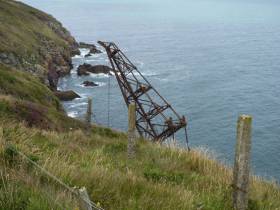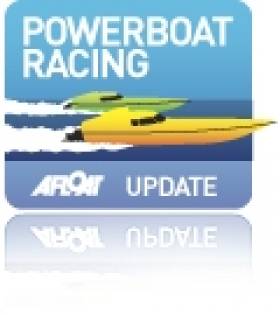Displaying items by tag: Ardmore
Study on Protection of Ardmore Bay, Co Waterford Approved for OPW Funding
A study on coastal protection and flood mitigation for Ardmore Bay, Co Waterford has been approved for additional funding by the Office of Public Works (OPW).
Minister of State with responsibility for the OPW, Patrick O’Donovan, sanctioned Waterford County Council’s application for funding under the OPW’s minor flood mitigation works and coastal protection scheme.
A sum of €19,207 had been agreed to cover additional costs for a study by the Hydraulics and Maritime Research Centre UCC.
“The overall aim of this study was to investigate coastal flood and erosion risk management and develop an appropriate plan to best manage the risks identified to human health, the environment, cultural heritage and economic activity,”the OPW says.
“The study provided a baseline information on erosion and flood patterns and the effects of coastal and flood protection measures. The information gathered will be used for coastal erosion protection measures and coastal flood protection measures where necessary,”it said.
The Minor Flood Mitigation Works and Coastal Protection Scheme was introduced by the OPW in 2009.
It provides funding to local authorities to undertake minor flood mitigation works or studies to address localised flooding and coastal protection problems within their administrative areas.
The scheme generally applies where a solution can be readily identified and achieved in a short time frame.
Under the scheme, applications are considered for projects that are estimated to cost not more than €750,000 in each instance. Funding of up to 90% of the cost is available for approved projects.
Applications are assessed by the OPW having regard to the specific economic, social and environmental criteria of the scheme, including a cost benefit ratio.
“Works that are normally the responsibility of the local authorities will generally not be considered for OPW funding. Where such works would also mitigate the risk of flooding to properties, partial funding may be considered by OPW,”it says.
The OPW says local authorities “must be satisfied that the works will not have a significant impact on flood risk elsewhere”.
Man Dies While Diving Off Waterford Coast
#Diving - A man has died after getting into difficulty while diving off Ardmore in Co Waterford yesterday afternoon (Sunday 12 June).
Youghal RNLI's volunteer lifeboat crew were tasked to the incident between Goat Island and Ram Head near Ardmore, Co Waterford before 4.30pm.
On arrival they found a man in the water who they recovered onto the lifeboat, and immediately administered casualty care.
Working with Helvick Head RNLI, who were also on scene, the casualty was winched onto the Irish Coast Guard helicopter Rescue 117 and brought to Waterford University Hospital, where he was later pronounced dead, as the Irish Examiner reports.
A spokesperson for Helvick Head RNLI that a second diver who had been with the deceased had managed to swim to shore to raise the alarm, allowing for a swift emergency response.
Commenting on the callout, Youghal RNLI lifeboat operations manager Fergus Hopkins said: "This was a difficult callout for everyone concerned and our thoughts are with the family of the man who was taken from the water this afternoon."
Youghal Boat Club Hosts Powerboat Race
Youghal Boat Club hosts its first national powerboat race hosted this weekend. Commodore Padraig Brooks sends this report: "All of our committee have been working hard these past few weeks, in conjunction with the Ardmore Pattern Festival committee to bring you the very best event possible. Thankfully everything is now in place and we eagerly anticipate the morning of Sunday, July 25th when we take to the water.
With a little bit of luck on our side, weatherwise, we should be racing in front of thousands of spectators on a exciting course right in the heart of lovely Ardmore Bay. The layout of the town means that this is a really great location both for those watching and those competing.
Racing will be in the P750 (Thundercat/Zapcat) fleet and the nature of same makes for an extremely spectator-friendly event. At time of typing we're hoping to have the largest ever domestic fleet of these boats gathered in Ardmore. Timings for the weekend are as follows:
Friday night - several of the boats are launching to watch the festival fireworks from the water
Saturday 1400-1630: Casual run-out and shake-down of the boats
Sunday 1230-1630: Full round of the ISA P750 National Powerboat Championships
Aside from the racing, Ardmore will be bursting with great activity for the whole family this weekend. We'd love to see you down here, and if you make it, be sure to come over and say hello.






























































